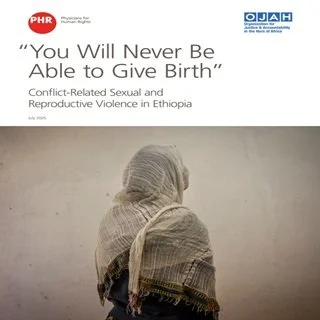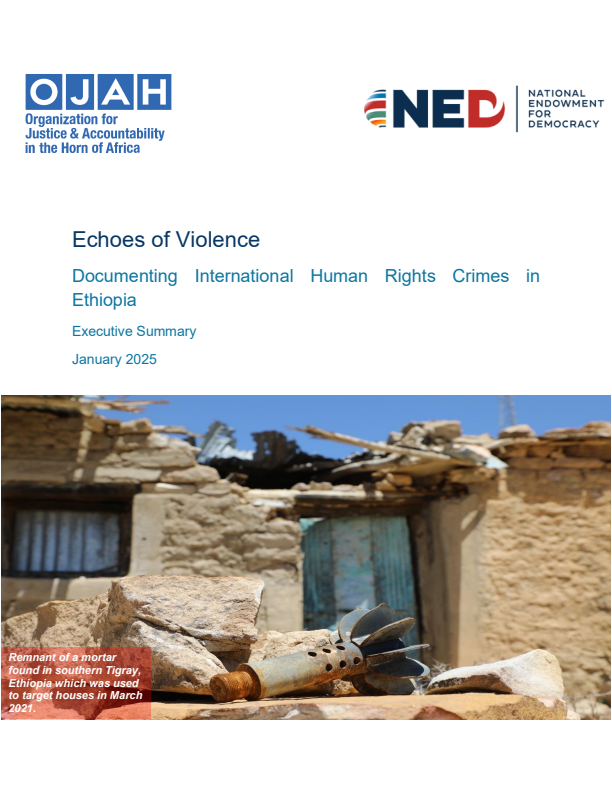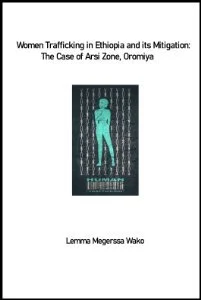By The Organization for Justice and Accountability in the Horn of Africa (OJAH) and Physicians for Human Rights (PHR)
The conflict in Tigray, Ethiopia started in November 2020 between the government of Ethiopia and the Tigray People’s Liberation Front (TPLF), with involvement from Eritrean military forces who were called into to support Ethiopian armed forces, and numerous ethno-regional militia groups notably from the Amhara and Afar regions of Ethiopia. The conflict was marked by widespread and severe forms of conflict-related sexual and reproductive violence as well as other human rights violations by all parties, some of which amount to crimes under international law.1
Following the signature of the Cessation of Hostilities Agreement (CoHA) in November 2022 by the government of Ethiopia and the TPLF, violence continued, including widespread and severe sexual and reproductive violence along ethnic-political lines across regions by military actors.2 As the conflict unfolded, both the United Nations (U.N.) and the African Union (AU) established independent investigative mechanisms to document atrocities and preserve evidence for future justice and accountability processes.3 However, both mechanisms were prematurely shuttered, without investigators even being allowed into the country, after successful lobbying by the Ethiopian government to defer to national mechanisms, including the transitional justice process outlined in the CoHA.4 The decision to shut down these investigative bodies, and with their termination, the end of any impartial investigation into violation of international law, occurred despite the assessment by the U.N. and other actors. These assessments found that the consultative process undertaken in developing the transitional justice process, as well as the implementation, does not align with AU or international transitional justice standards.5 Notably, the process also lacks a survivor-centered approach, meaningful engagement with affected communities, or mechanisms to hold all perpetrator groups accountable, in violation of key international and regional standards on credible transitional justice processes.6 More recently the lack of openness of the transitional justice process to those seeking genuine accountability has been demonstrated by the Ethiopian government’s suspension of five human rights groups.7The lack of timely and meaningful justice for crimes committed in Tigray raised the alarm that instability and further atrocities would be perpetrated in other regions of Ethiopia.
Washington, DC: The Organization for Justice and Accountability in the Horn of Africa (OJAH) and Physicians for Human Rights (PHR) 2025. 88p,





